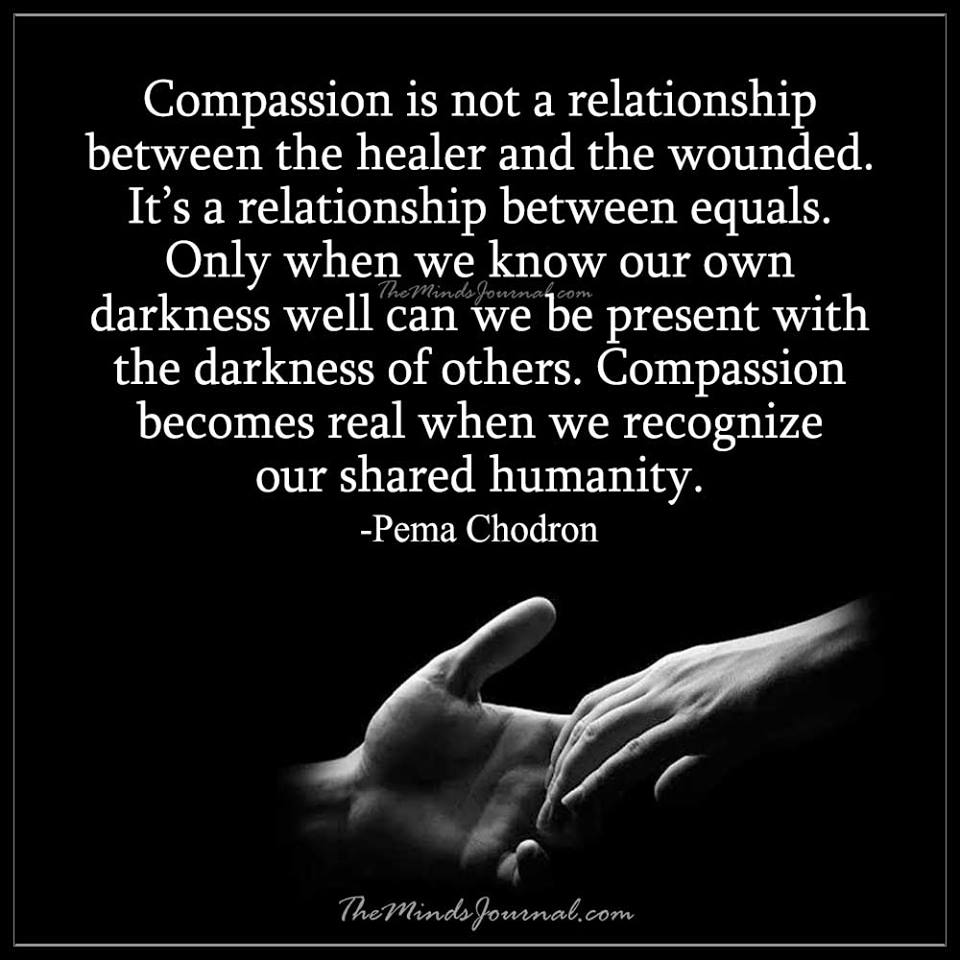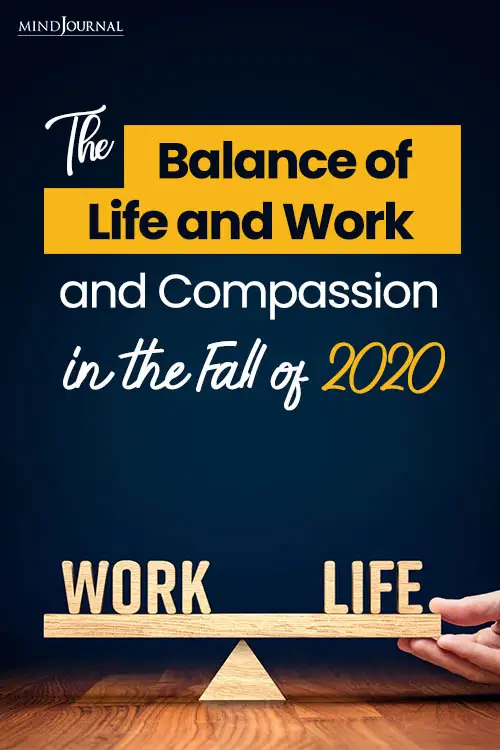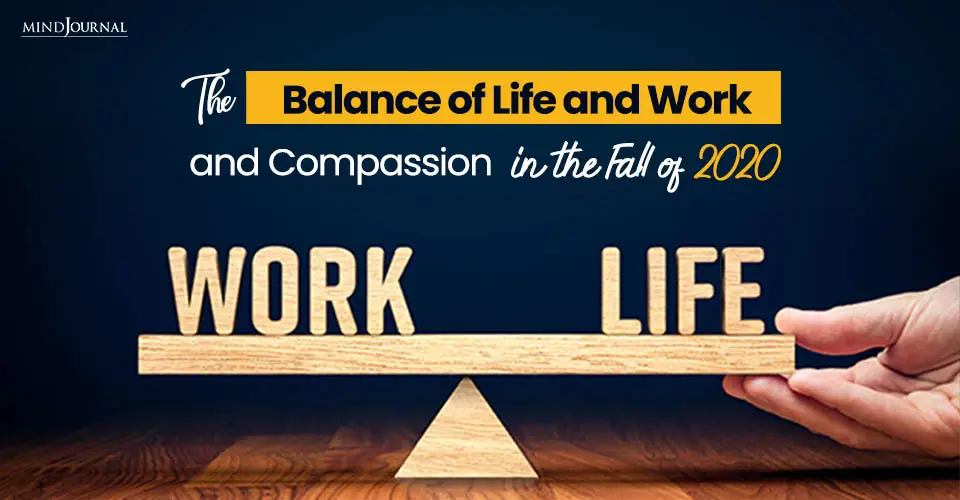Pandemic and the fall of 2020 has changed every aspect of our life But, it is critical to maintaining the balance of life and work and compassion. Here’s why and how to do it.
I found myself staring at the calendar in disbelief, that it was already September. I reflected back over what had transpired during the Summer months, with camps non-existent and most activities canceled, I had been worried about the mental health of my children.
While their father and I have the privilege of working from home, the hours are long. I had already been noticing the effects of the Spring upon our youngest’s disposition. The stress of worrying about them along with the interruptions to routine and schedule were taking their toll upon us all. I was extremely grateful when plans for the extended family to take my youngest two children emerged.
At 11 and 14, they would spend their Summer on a working farm. Land that has been in the family for hundreds of years, was filled with haylofts, swimming pools, chickens, goats, donkeys and cows.
My kids who days earlier had been complaining about walking the dog, would now call and chat all about how the manure of goats smelled worse than that of the cows. My son learned to drive a gator and was all too proud to show me his new skills when I arrived two months later to pick them up and bring them back home.
I had spent a good amount of time planning for their return home, yet, what I quickly realized was no amount of planning was ever going to feel like it was enough. I was being inundated by emails and phone calls about the ever-changing new rules of school days for the Fall of 2020. Anxiety began to taunt me that I was missing details, balls deemed “necessary” and important were being dropped.
I found myself trying to juggle their lives amidst a calendar that was full on its own. It was hard to think, my brain felt like the morning fog was settling in so thick and heavy that congruent, formed thoughts weren’t ever going to come again. There wasn’t consolation as I heard other parents and clients share the same story.
Related: Are You A Workaholic? How To Tell And What To Do About It
It happened one day as a session was beginning. My client had been silent on the other end of the line for longer than normal and while it is my practice to allow for silence and transition at the beginning of a session, this space felt different. Interrupting the silence, I began to speak, “Lengthen your breath, as you can take a long inhale and an even longer exhale, and when you can tell me how your body is situated.”
His words would eventually come as he detailed how he was sitting at his desk with his elbows resting on the surface, his hands holding his head as his neck bent forward, a very deep sigh would emerge from his being releasing pent up heaviness and stress.
Physically having to return to the workplace had created strain upon family schedules, my client and his partner were becoming master jugglers and yet the toll was being felt by everyone in their family.
Related: How To Deal With Passive-Aggressive People In Your Life
It is the same familiar story containing two working parents and kids returning to a variety of educational options, the Fall of 2020 was landing upon this man’s lower back, shoulders, neck, and head gripping his body tighter and tighter. Headaches were now part of the “normal” routine, as tension and fatigue were being felt throughout.
Balancing schedules has always had its need to learn the dance steps of what requires to be done when and who needs to be where amidst projects and deadlines. Add the realities of 2020, the Fall is landing upon us all with obstacles and dilemmas much higher and heavier.
The ONE dance step that MUST be learned, COMPASSION.

What does compassion tangibly look like? Here are few possibilities to try:
1. There is a technique that is called Body Scan.
It is simply what it is called, starting at the top of your head or the soles of your feet take a moment to be aware of what is happening with yourself. Notice what the physical body feels like, take inventory of your breath and if you are holding it or intentionally taking some deeper, longer ones.
Give yourself a moment to feel what is happening within your emotions amidst all the adjustments you are experiencing, grant your mental body, and thoughts some space to process all that is inundating your senses.
Awareness is key to accepting what is happening, laying a foundation for wisdom and choices to help inform action steps that will undergird your wellbeing.
2. Grounding:
Whether you are standing or sitting place your feet solidly upon the ground.
Roll your shoulders down your back, lift with intention through the top of your head giving yourself spaces to physically feel present to the moment.
Use your breath alongside this stance by lengthening the inhale and making the exhale even longer.
Related: 5 Ways You Can Practice Self-Compassion And Be Kind To Yourself
3. Intention Setting:
Allow the awareness, the grounding and the longer breath to support you as you wisely access what the days will hold. Take a moment before bed to set an intention for the next day, be honest with yourself, make it doable and practical.
“I will take two longer breaths before responding to my partner, my kids, a colleague or my employer.” “I will acknowledge my stress, my emotion.” “I will do what I can with what I have.” “I will drink water and eat well.” “I will get up and move every 3 hours.”
For each of us, self-compassion will look different, that is why applying awareness is key. Ask yourself questions!
- What triggers you?
- What support do you need?
- Is there flexibility with scheduling?
Related: Self-Awareness vs. Self-Consciousness: The Confidence Perspective
The balance of life and work has always had its challenges.
In the world we are living in those challenges have taken on Olympic sized obstacles, it is necessary to offer yourself and each other compassion, understanding, and time to adjust. Take longer breaths upon the inhale and the exhale, move your body, be aware, and intentionally throughout the day. Make sure you are hydrating your body, eating well, and getting rest. Everything you do for yourself, your family, and your colleagues whether it is big or small, will help bring support for us all in these times.
How are you trying to strike the balance of life and work and compassion?
Written by : Elle Miller
Readers of Mind Journal who mention this article can avail $50 discount on an individual intake session from Elle Miller priced originally at $225.









Leave a Reply
You must be logged in to post a comment.